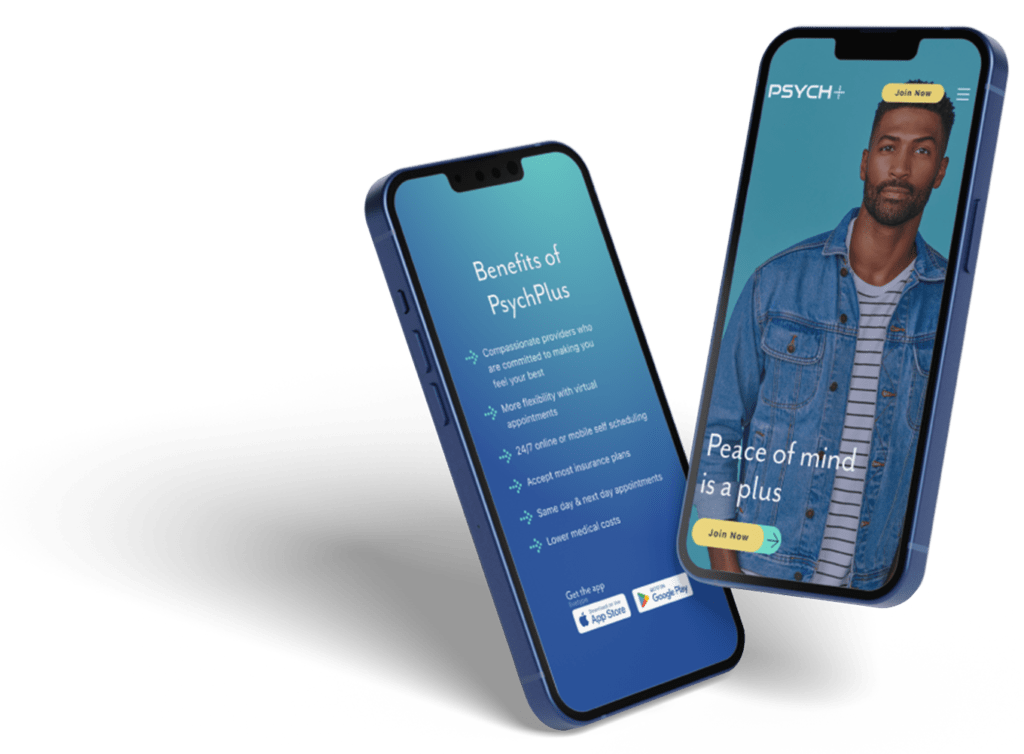PTSD Psychiatrist in Houston
Your path to healing begins with our trusted psychiatrist in Texas, where compassion meets expertise. Empowering minds, healing hearts.
Humble Texas’ Source for PTSD Support: Trust Our Expertise
Find Healing and Hope: Humble Texas’ Expert PTSD Psychiatrist
Empowering Minds, Easing Trauma: Humble Texas’ Trusted Specialist
Your Journey to Recovery Begins Here: Humble Texas’ PTSD Psychiatrist

At Psych Plus, we fully grasp the deep-seated repercussions that post-traumatic stress disorder (PTSD) can exert on a person’s existence.
PTSD Psychiatrist in Humble Texas: Expert Healing
At Psych Plus, we fully grasp the deep-seated repercussions that post-traumatic stress disorder (PTSD) can exert on a person’s existence.


Why Choose Psych Plus for PTSD Assistance
At Psych Plus, we fully grasp the deep-seated repercussions that post-traumatic stress disorder (PTSD) can exert on a person’s existence. Our cadre of committed, board-certified psychiatrists stands ready to extend specialized assistance tailored for the distinct complexities of PTSD.

PTSD Specialization
Our psychiatrists in Houston boast a rich background in the diagnosis and intervention of PTSD. They’re continually updated on the newest breakthroughs in PTSD therapy, ensuring you’re privy to the most current and scientifically-backed care.

Tailored Therapeutic Approaches
Our ethos revolves around adapting our PTSD interventions to resonate with each patient’s distinctive challenges and history. Our psychiatrists engage intensively with you to craft a treatment blueprint that aligns with your particular symptoms, catalysts, and objectives.

Advanced Therapeutic Techniques
Psych Plus is unwavering in its pledge to proffer the freshest and most groundbreaking treatments for PTSD. Be it trauma-centric therapy, medicinal oversight, or diverse therapeutic pathways, we harness an all-encompassing assortment of methodologies to assist you in navigating and transcending your PTSD.

Comforting and Empathetic Setting
We acknowledge the inherent difficulty in broaching topics of trauma and PTSD. Our facility is a haven offering an environment conducive for open dialogue about your ordeals, ensuring you receive empathetic care devoid of biases.
Delay not in procuring the top-tier PTSD assistance you rightfully need. Reach out to Psych Plus promptly to delve deeper or to arrange a session with one of our eminent PTSD psychiatrists in Houston, Texas. Your voyage towards recuperation and renewal kicks off here.
Most Insurances Accepted


Benefits of PsychPlus
Compassionate providers who are committed
to making you feel your best
More flexibility with virtual appointments
24/7 online or mobile self scheduling
Accept most insurance plans
Same day & next day appointments
Lower medical costs


See What Others Are Saying
Help reimagine access to modern and accessible mental healthcare.

Recognizing the Symptoms of PTSD:
A Closer Look at Avoidance
Recognizing the symptoms of PTSD is crucial in seeking appropriate treatment. One common symptom is avoidance, where individuals go to great lengths to avoid triggers and reminders of the traumatic event. They may avoid situations, places, or people that remind them of the trauma. However, this avoidance can interfere with normal functioning and prevent individuals from engaging in activities they once enjoyed. Seeking professional help can provide guidance on managing and reducing these avoidance symptoms, allowing individuals to regain control of their lives.

The Role
of Intrusive Memories in PTSD
Intrusive memories play a significant role in PTSD, causing distressing recollections of traumatic events. These memories can manifest as flashbacks or nightmares, exposing individuals to the emotional reactions associated with the trauma. Understanding the impact of intrusive memories is essential for comprehending the complexity of PTSD and its effect on mental health. Treatment strategies aim to reduce the frequency and intensity of these memories, promoting healing and recovery. Psychotherapy techniques like EMDR and exposure therapy help individuals process and manage intrusive memories.

Physical and Psychological Symptoms of Avoidance
When it comes to PTSD, avoidance symptoms can have both physical and psychological manifestations. Physically, individuals may experience increased heart rate, sweating, and shortness of breath when confronted with triggers. On a psychological level, avoidance can lead to feelings of detachment, numbing, and a general sense of unease. Recognizing these symptoms is crucial in understanding the full extent of the impact of avoidance in PTSD. Seeking support from a specialist or psychiatrist can provide effective strategies for managing these symptom

Long-Term Impacts of Avoidance on Mental Health
Prolonged avoidance in PTSD can have severe long-term impacts on mental health. It can lead to decreased overall quality of life, social isolation, and difficulty forming and maintaining relationships. Additionally, it may contribute to developing comorbid conditions such as depression and anxiety disorders. Understanding the long-term consequences of avoidance underscores the importance of seeking timely treatment and support. With proper care and guidance from a PTSD psychiatrist or specialist, individuals can work towards rebuilding their lives.

Treatment Strategies for Reducing and Managing Avoidance Symptoms
There are numerous effective strategies available for reducing and managing avoidance symptoms in PTSD. Cognitive-behavioral therapy (CBT) techniques can be used to challenge and reframe negative thoughts and beliefs associated with the trauma. Exposure therapy allows individuals to gradually confront and tolerate triggering situations or memories in a safe environment. Mindfulness practices enhance self-awareness and provide tools for managing distressing thoughts and emotions. Medication management, when appropriate, can also play a role. Seeking guidance from a qualified PTSD psychiatrist ensures access to a tailored treatment plan.


PTSD Psychiatrist in Houston: Your Post Traumatic Stress Disorder Specialist for Healing
In Houston, diagnosing PTSD involves a thorough evaluation by a specialist experienced in trauma-related disorders. The diagnostic process aims to understand the symptoms and their impact on an individual’s daily life. By following specific criteria, healthcare professionals assess the presence of symptoms such as intrusive thoughts, avoidance behaviors, and hyperarousal. It is essential for accurate diagnosis, as it paves the way for effective treatment strategies tailored to the individual’s needs. With proper evaluation, individuals can receive the support and care necessary to embark on their journey towards healing and recovery.
























